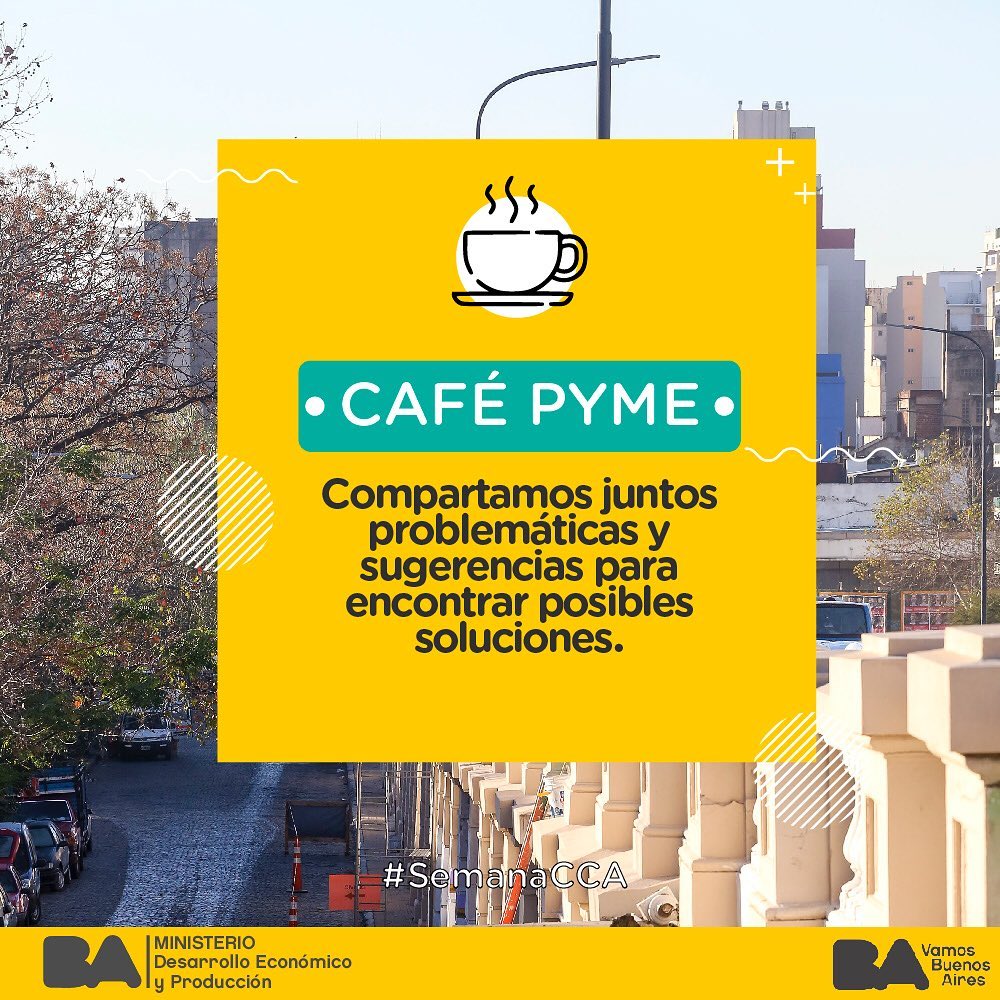Opening up opportunities for SMEs in Buenos Aires

Through Lift, OCP’s impact accelerator program, a cross-governmental team came together to collaborate on expanding SME participation in public procurement.
When the team from the City of Buenos Aires (GCBA) was selected for the Lift program with their goal to increase public procurement opportunities for SMEs in 2019, they could never have foreseen a global pandemic that would and force them to reconsider their entire approach. But thanks to their cross-departmental collaboration and commitment to understanding the needs of SMEs and, the city was able to navigate the pandemic and is on its way to expanding opportunities for the country’s critical small business sector.
The challenge
SMEs drive Argentina’s economy and account for 45% of the country’s GDP. Almost a quarter of these businesses (130,000) are in the City of Buenos Aires, which is one of the largest buyers in the country. But participating in the public procurement system remains a challenge for many SMEs.
“If you try navigating the system from the perspective of an SME, you soon realize that the processes are complex, and there are problems in terms of communicating and interacting with users. As a result, very few SMEs end up able to take part in public procurement processes,” said Maricel Lonati, former Operational Manager at the General Directorate of Institutional Quality and Open Government, one of the officials who headed up the project design and development team. This means that smaller SMEs, which tend to have only a few employees and already struggle to meet their day-to-day expenses, can find it especially hard to participate.
“It’s always the same big players in the market who dominate,” commented Ángeles Ferreyra, an official working for the Purchasing and Procurement Department within the GCBA’s Ministry of Finance and Treasury.
“This is damaging because we are left with a lack of variety. Not only in terms of prices, but also in the type of public policy we can implement,” Lonati added
The approach
The team’s idea to expand SME participation was inspired by these reflections. Although the project started within the Open Government department, it quickly became clear to the team’s founding members that achieving their objective would only be possible by working closely with two other key GCBA departments: the Purchasing and Procurement Department, and the Under-secretariat of Micro, Small and Medium-Sized Enterprises.
The initial plan was to approach SMEs to find out their needs and expectations around public procurement and their experience using of the City’s procurement system, with the aim of designing a product that would help increase their participation.
But when COVID-19 hit, the team was forced into rethinking the entire project. Many of their planned activities, such as in-person user testing, face-to-face trainings, and meetings, were no longer feasible for the near term, so the team came up with creative ideas to expand their understanding of the vendor experience.
Their first step was an exploratory analysis of data published in OCDS format by Buenos Aires Compras (BAC) to understand more about the City’s data assets and determine the extent of SMEs involvement in public procurement processes. Based on this information, the team established baseline information on participation and award of contracts to SMEs.
Following this analysis, the team’s next step was to embark on a campaign to update the supplier registry, focusing on SMEs and women-owned businesses eligible for the Sello Empresa Mujer, a GCBA initiative designed to give some gender perspective to public procurement. The campaign included a video to boost participation, and a mass mailing initiative aimed at SMEs containing a basic questionnaire to gain a better understanding of the vendor community.
As a result of this work, over 5,000 businesses updated their contact information, and the number of SMEs in the supplier registry increased by 3% (in total, 4,669 businesses). The number of women-run SMEs that obtained the Sello Empresa Mujer also increased by 81% (totaling 87 businesses).
Empowering SMEs
The team also conducted surveys to discover whether SMEs in Buenos Aires were aware of the business opportunities offered by GCBA. A total of 67% responded “no” and 72% said they were interested in receiving training on participation in public procurement, preferably through online channels.
The SMEs surveyed also pointed out that they had not participated in public procurement initiatives in the City because the requirements were hard to meet or unclear. Other limitations reported included difficulties in accessing tenders in their sector or in downloading the tender documents. In response to this diagnosis, the team delivered an e-learning course on Public Procurement for SMEs with content designed to meet the needs of these businesses and ensure they can participate successfully as suppliers in the Government’s procurement processes, using open public procurement data so that potential suppliers can better understand the market and identify business opportunities.

In response to this diagnosis, the team delivered an e-learning course on Public Procurement for SMEs with content designed to meet the needs of these businesses and ensure they can participate successfully as suppliers in the Government’s procurement processes, using open public procurement data so that potential suppliers can better understand the market and identify business opportunities.
E-learning course on Public Procurement for SMEs
The course is online and can be taken at any time. Participants can progress through the contents at their own pace. It contains instructions in simple language, video tutorials and manuals, and focuses on providing all the key information required to ensure that SMEs know how to access the GCBA’s public procurement market. Registrations are open here.
Course content:
- Module 1. The Public Procurement System in the City of Buenos Aires
- Module 2. Open Procurement Data
- Resources for SMEs
Module 1 is an introduction to the City’s procurement system Buenos Aires Compras (BAC). It outlines the steps and key concepts for understanding the basics of the system, how it works and how to start using the platform.
Module 2 is focused on business intelligence and offers an innovative approach by walking potential suppliers through the process of downloading, filtering, using and analyzing data. Users can see, for example, how much the Government is buying in a specific sector, which agencies are buying, who is competing, at what prices, etc.. In other words, the platform offers a wide range of useful information to help SMEs to decide whether or not to participate on that market.
Finally, there is a repository containing useful resources for SMEs, such as a list of online training courses for SMEs delivered by GCBA, information on how to obtain the “Certificado MiPyME” or how to access the “Asistente PyME” in pandemic times.
Data quality and improvements
As a result of using data to prepare the course, the team identified a number of areas for improving the quality of the data available in OCDS, including, simplifying the download process and usability. The team decided to incorporate the Framework Agreement extension, a form of procurement that is often highly advantageous for SMEs because they can offer the products available based on what they produce without having to do so in large quantities.
In addition, bearing in mind that SMEs can provide goods and services ranging from highly technical service companies to small local hardware stores, the course provided a data dashboard to make data analysis more straightforward without the use of spreadsheets. “Although they are thought of as being intended for a limited audience, these are simple tools that can ensure that our suppliers, or those interested in seeing our data, can do so in a more user-friendly manner,” adds Ángeles Ferreyra.
The data analysis from the first stage of the project also helped the Open Government team to tweak the design of the Coronavirus Procurement platform to include SMEs.Simply by checking a box, SMEs are registered as suppliers.
Changing perceptions
“Although the pandemic caused a whole host of problems, we ended up with a better project as a result,” said Lonati, “Instead of letting the project gather dust in a drawer, we managed to create something that was useful for citizens and sectors of the city’s economy at an important moment in time.”
There is still more that can be done to ensure greater openness, simplification of processes, and prompt payment, this project has been a strong step towards deeper reforms. The project has already helped change government perceptions about SMEs and their needs, as well as shifted vendors’ views of the procurement process.
Lonati explained: “When a public official can offer information and explain how systems work, and approach SMEs to ask for their opinions on the processes, this starts to change the perception that the same vendors will always emerge victorious.”